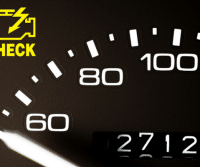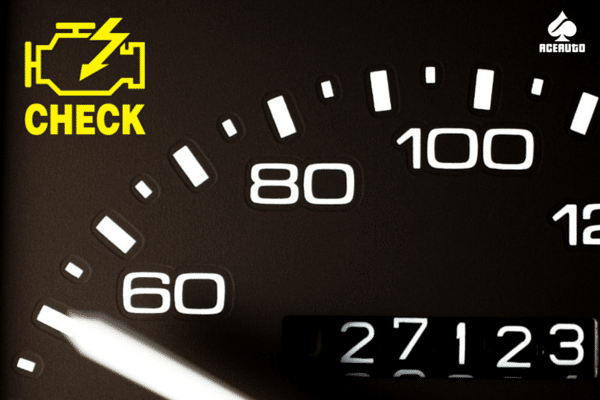Transmission Repair Specialists in West Jordan, Utah
Is your vehicle experiencing transmission troubles? We're transmission repair geniuses! We guarantee we can fix your transmission and get you up and running in no time.
READ MORE -

You might be driving at full speed on the highway or cruising through town when you notice the check engine light in your dash has come on. The car seems fine and you might be tempted to ignore the warning light. What is the check engine light? Why does the check engine light come on?
The Check Engine light, formally known as the Malfunction Indicator Lamp (MIL), is a signal from the car's engine computer that something is wrong. A federal government mandated on-board diagnostics (OBD) for all passenger cars sold in the United States, a check engine light is different than "service required" light which simply means it’s time for an oil change or air filter check. While increases in repair costs might cause consumers to postpone vehicle repairs, doing so is a bad idea. The reasons a check engine light is on range from a damaged gas cap to a bad sensor. The repairs may not be as costly as you fear.
A loose or damaged gas cap is the least expensive, yet very common, problem that can cause your service engine soon light to come on. Loose or damaged gas caps result in millions of gallons of evaporated fuel each year across the nation. If you notice the check engine light going on and off, try tightening or even replacing the gas cap. The low average repair costs show that simply tightening the cap usually solves the problem.

A failed O2 sensor is the most common cause of a flashing check engine light. The O2 sensor is a critical part of the exhaust system, monitoring how much unburned oxygen is exiting the engine in the exhaust. The sensor sends messages back to the engine to adjust the mix of oxygen and fuel being used. A faulty O2 sensor will result in reduced fuel economy and can take a toll on the catalytic convertor. Replacing the O2 sensor will protect critical engine systems and keep your vehicle running at peak fuel efficiency.
The catalytic converter is a rugged component of the overall exhaust system. Generally, catalytic converter repair is a secondary underlying program that is ignored for too long, such as a failed spark plug. A more costly repair because of the precious metals used in its construction, replacing catalytic converters represented just 6.1% of repairs in 2013.
The mass air flow sensor calculates the amount of fuel needed to mix efficiently with the oxygen in the engine. A malfunctioning sensor will lower fuel economy up to 25 percent. Having it replaced by your mechanic will cost an average of $423.00 but will make it up to you in savings at the pump.
Can spark plugs cause check engine light to flash? Absolutely! A fouled spark plug can cause the engine to misfire. Replacing the spark plugs in a timely manner will be a relatively small expense. The cost to replace spark plugs varies significantly based on the type of car you have and where you take your car. Cars have differing numbers of spark plugs and the accessibility of the spark plugs will affect the labor rate as some cars may be designed in a way that makes the spark plugs harder to reach. Cars like a BMW will be on the higher end, and cars like a Toyota Corolla will be on the lower end. If the problem is ignored, the damage can spread to the spark plug wires, catalytic converter, or ignition coils causing a more costly repair.
Local parts stores can check engine codes for free, but this will just give you an error code, and it just the beginning of the diagnostic process. You can buy a home diagnostic machine yourself, however, you would need to know how to read it.
Ace Auto Repair in West Jordan Utah provides expert diagnostics with written estimates. Many people ignore warning lights if the car still seems to drive the way it used to, however, a check engine light is a red flag that something in your vehicle is amiss. If you see the check engine light flashing and you don’t take care of it immediately, you are putting your car at risk for costlier future repairs and malfunctions.
Recent Comments